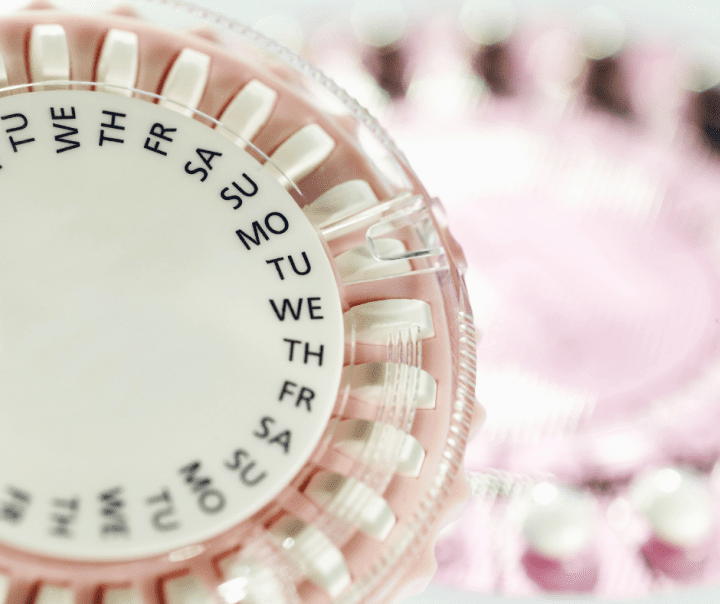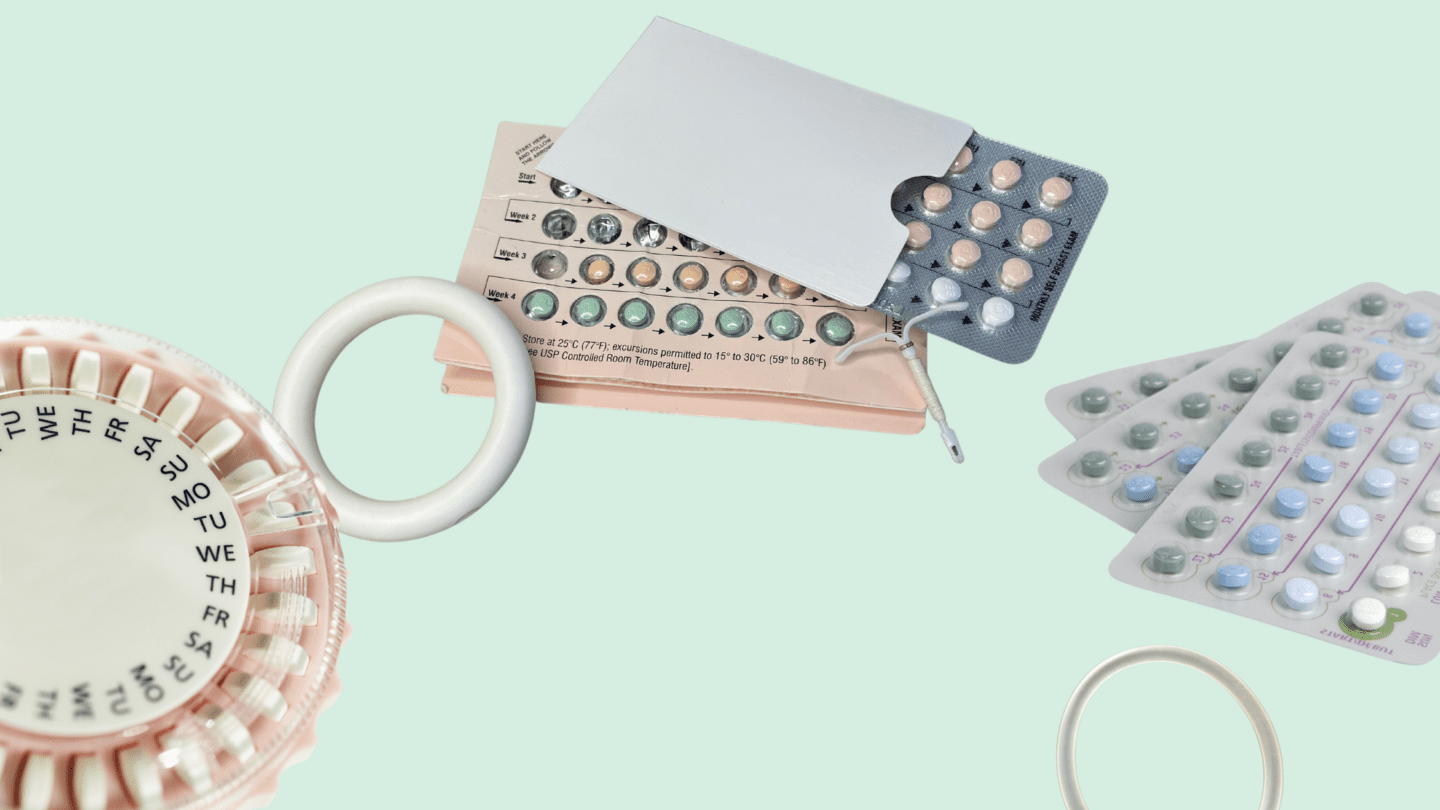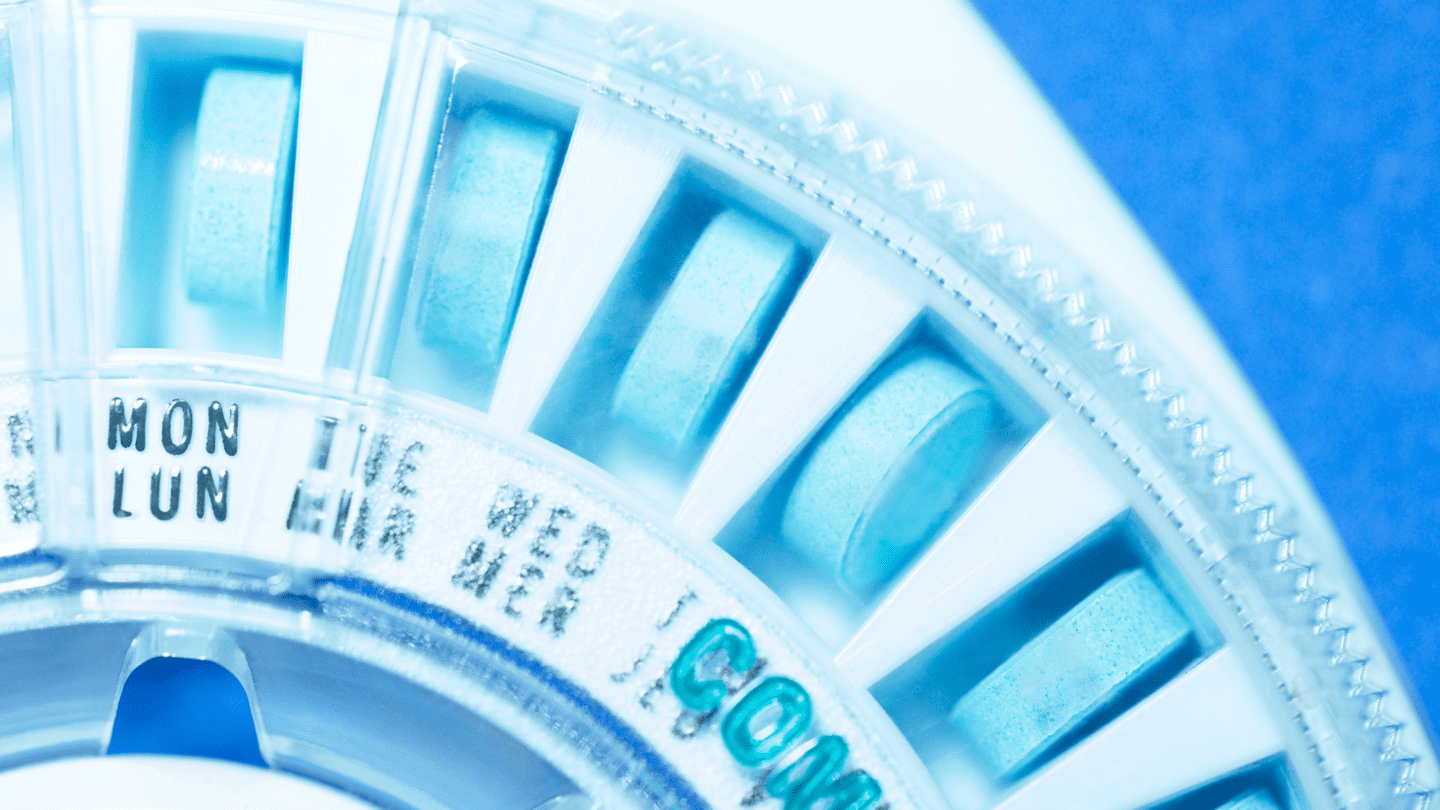You’ve been feeling depressed. You’ve gained some weight. Your acne keeps flaring up. And you’ve been on for years. Is your contraceptive to blame, or are your symptoms unrelated? It can be tricky to sort out whether your is causing unwanted side effects, especially since different contraceptive methods can have such different effects on different people.
It’s easier to blame your if you’ve just started a new option and you’re suddenly seeing new symptoms — like if you never had migraines before, and now you do. But other side effects can be more subtle (like making existing depression worse) or even invisible, like increasing your risk of blood clots down the line. Sometimes, your might not be causing a symptom per se, but you might be missing an opportunity to use to make it better — some people find that actually helps with health issues like depression, acne, or migraines.
It can be tricky to sort out whether your is causing unwanted side effects, especially since different contraceptive methods can have such different effects on different people.
Either way, if something feels wrong with your body, it’s important to get to the bottom of it. Unfortunately, the only sure-fire way to see if your is causing a side effect is to go off it for a while, though that requires some careful additional protection against pregnancy, like diligent condom use. Still, there’s evidence that certain forms of are more likely to cause certain side effects, so knowing what the research says can help inform your decisions. Here’s our advice on some of the most common birth control side effects.
Is my making me gain weight?
One of the most common questions people ask about their is whether it’s making them gain weight. In fact, it’s a big reason people report going off contraceptives or switching methods.
That said, there’s not good evidence that hormonal contraceptives cause weight gain.1 Some studies point to increased fluid retention as a potential source of weight gain, and there’s evidence that estradiol and , two key ingredients in many forms of , could have some effect on the body’s water balance.2 Still, studies that have looked for weight gain on contraceptives tend to come up short.
Like what you’re reading? Get the latest straight to your inbox 💌
The birth control shot (Depo-Provera) is the only method that’s had any concrete links to weight gain, especially for people who are already overweight.3 But even there, evidence is fairly limited.
Another simple explanation could be that people tend to gain weight gradually over time as they age. For example, in 2008, American females had gained, on average, 1.5 pounds per year over the past decade — so 15 pounds total.4 And that’s just an average, which means for every person who gained less than that, someone else gained more.
Is my making me crazy?
If you think your is making you crazy, first, let’s take a breath and cut ourselves some slack. In fact, we’d encourage you to not use “crazy” to describe yourself, or others, who might be acting emotional, overwhelmed, or experiencing any number of other perfectly normal feelings!
We do know that can definitely impact your mood, especially when it comes to emotions related to stress.5 There’s even some evidence that higher levels of (the in some hormonal birth controls) might be associated with higher levels of (self-reported) jealousy.6
On the flip side, there’s no association between contraceptive use and lower relationship quality — one study that looked into it found starting or stopping had no effect on relationships.7 Many people even find that has a leveling effect on their mood, for instance reducing mood-related symptoms of PMS and PMDD. This has been confirmed by researchers, with some even suggesting it increases relationship satisfaction.8
Hormonal isn’t going to “make you crazy,” but hormones can affect your mood.
Still, if you’re worried your is making you emotional, talk to your doctor. isn’t going to “make you crazy,” but hormones can affect your mood. Your doctor might suggest a progestin-only or a non-hormonal option like a copper IUD if hormones are really hurting your mood.
Is my making me depressed?
First, we need to be clear about what we mean when we talk about depression. Depression is a complex disease, and clinical depression is diagnosed with strict criteria. This means that people may experience depressive symptoms that are disabling, but don’t cross the threshold for a diagnosis of clinical depression.9
Here, specifically, we’re talking about both clinical depression and experiencing depressive symptoms. So now that we’ve clarified that, we can rephrase our original question: Is my causing me to experience depressive symptoms? It’s complicated! There’s evidence that people experience both increases and decreases in depressive symptoms while on hormonal contraceptives.

In 2013, researchers from Columbia University looked at over 6,600 women 25-34 years old and found that those using were less likely to have experienced depressive symptoms or to report a suicide attempt.9 It’s an idea that’s been around for a while: In a 2001 report, researchers recommend hormonal contraceptives as a mood stabilizer for postpartum, premenstrual, perimenopausal, or postmenopausal people.10
But different s may have different effects, and studies don’t always agree. A 2012 study looking at 498 women between 20 and 50 years old found that people taking progestin-only forms of were more likely to have a mood disorder, while those on a combined form (that is, one with both and ) were less likely to have a mood disorder than non-users.11 But a 2016 study looked at over one million women in Denmark and found all forms of hormonal contraceptives at least somewhat increased the chances people would go on antidepressants.12 Meanwhile a 2020 review that looked at a number of different studies on hormonal contraceptives and mood concluded that there was no real effect, though adolescents might be more vulnerable than adults.13
Depression is a complex disease that has multiple causes, and our unique bodies can react differently to different methods and doses of hormonal . In general, researchers seem to acknowledge that this topic is a major research gap, and more study is seriously needed.14 If you think your is making you depressed, talk to your doctor.
Is my making me sick?
Nausea is almost always listed as a possible side effect,15 but research-based evidence on the topic is extremely lacking. There are studies that link with nausea, but nearly all of them are related to pregnancy16 or emergency contraceptives,17 not to the pill or other forms of hormonal contraceptives.
If you’ve just started a new contraceptive and are feeling nauseous, experts suggest waiting it out — many initial side effects, including nausea, often go away after 2-3 months.15 But if your nausea is severe, that might be too long to wait. Ask your doctor right away if switching methods is a better option for you.
Is my giving me acne?
If you’re wondering whether your is making you break out, the answer is, yet again… maybe. (When we say that side effects are under-researched, this is what we mean!)
Sex hormones called s can increase the production of oil called sebum in the skin, which contributes to acne.18-19 and affect production, which is why can impact acne.
Here’s where it gets tricky: decreases production, but s can increase it, depending on the type of .20 That means that some types of hormonal birth controls make acne better, but others can make it worse. Typically, progestin-only pills are more likely to cause acne trouble, but there’s been little research into this.
If you’re experiencing unwanted acne, regardless of whether your current contraceptive is causing it, evidence suggests combined hormonal pills are your best bet.21-22 That especially goes for ones with later-generation s. Three are approved by the FDA to actually be used to treat acne: Estrostep FE, Ortho Tri-Cyclen, Beyaz, and Yaz.
Learn more about birth control and acne.
Is my giving me yeast infections?
Finally, an easier one! No, your is likely not to blame for your yeast infections. In fact, using contraceptives may actually promote a healthy vaginal microbiome, which prevents infection.23 The one exception can be the vaginal ring, because they can provide a place for vaginal yeasts to grow, which can potentially facilitate infections.24 This can be avoided with proper cleaning whenever you take out the ring – with warm, soapy water and drying before storage.25 But other insertables like IUDs don’t have the same problem26 – though there is a slight possibility that an existing vaginal infection could be spread to your during the insertion process.27
By the way: If you’re having yeast problems, it’s more likely a gel, sanitizer, or moisturizer you’re using. A survey of over 1,400 owners revealed that people who had used any vaginal or genital products were over three times more likely to have adverse vaginal health outcomes, including yeast infections.28 Why? One reason may be that products like these can mess up your vaginal microbiome, making it more susceptible to infections.
How do I know if I’m having side effects?
It can be tricky to know if a symptom you’re feeling is a side effect of your contraceptive, especially if it’s hormonal birth control, or if it’s just a natural part of being [insert your age here]. But if you’re not feeling your best, it’s worth it to try to figure out the cause and find a solution. There are so many options out there, and each one can affect each person slightly differently. What works for your friend might not work for you – something adyn’s founder noticed in her own experience with that ultimately sparked her idea for The Birth Control Test.
Don’t be afraid to talk to your doctor about how you’re feeling, or to try switching to a different method — you’re worth it!
-
- Gallo, Maria F., et al. “Combination contraceptives: Effects on weight.” Cochrane Database of Systematic Reviews 1 (2014).
- Stachenfeld, Nina S. “Sex hormone effects on body fluid regulation.” Exercise and Sport Sciences Reviews 36.3 (2008): 152.
- Mangan, Sharon A., Pamela G. Larsen, and Suzanne Hudson. “Overweight teens at increased risk for weight gain while using depot medroxyprogesterone acetate.“ Journal of Pediatric and Adolescent Gynecology 15.2 (2002): 79-82.
- “The American profile: Weight gained over the last 20 years.” AmericanObesity.org (2009 Nov).
- Albert, Kimberly M., and Paul A. Newhouse. “Estrogen, stress, and depression: cognitive and biological interactions.” Annual Review of Clinical Psychology 15 (2019): 399-423.
- Cobey, Kelly D., et al. “Hormonal birth control use and relationship jealousy: Evidence for estrogen dosage effects.” Personality and Individual Differences 50.2 (2011): 315-317.
- Jern, Patrick, et al. “A high-powered replication study finds no effect of starting or stopping hormonal contraceptive use on relationship quality.” Evolution and Human Behavior 39.4 (2018): 373-379.
- Taggart, Tenille C., et al. “Oral contraceptive use is associated with greater mood stability and higher relationship satisfaction.” Neurology, Psychiatry and Brain Research 30 (2018): 154-162.
- Keyes, Katherine M., et al. “Association of hormonal contraceptive use with reduced levels of depressive symptoms: a national study of sexually active women in the United States.” American Journal of Epidemiology 178.9 (2013): 1378-1388.
- Halbreich, Uriel, and Linda S. Kahn. “Role of estrogen in the aetiology and treatment of mood disorders.” CNS drugs 15.10 (2001): 797-817.
- Svendal, Gjertrud, et al. “The use of hormonal contraceptive agents and mood disorders in women.” Journal of Affective Disorders 140.1 (2012): 92-96.
- Skovlund, Charlotte Wessel, et al. “Association of hormonal contraception with depression.” JAMA Psychiatry 73.11 (2016): 1154-1162.
- Roe, Andrea Hsu, et al. “Effects of hormonal contraception on mood.” Current Obstetrics and Gynecology Reports 9.3 (2020): 112-119.
- Schaffir, Jonathan, Brett L. Worly, and Tamar L. Gur. “Combined hormonal contraception and its effects on mood: a critical review.” The European Journal of Contraception & Reproductive Health Care 21.5 (2016): 347-355.
- Planned Parenthood. “What are the side effects of the birth control pill?” PlannedParenthood.org (N.D.): Last accessed 2022 Apr 22.
- Lagiou, Pagona, et al. “Nausea and vomiting in pregnancy in relation to prolactin, estrogens, and progesterone: a prospective study.” Obstetrics & Gynecology 101.4 (2003): 639-644.
- Rodriguez, Maria I., et al. “Prevention and management of nausea and vomiting with emergency contraception: a systematic review.” Contraception 87.5 (2013): 583-589.
- Ghosh, Sangita, et al. “Profiling and hormonal therapy for acne in women.” Indian Journal of Dermatology 59.2 (2014): 107.
- Leyden, James J. “New understandings of the pathogenesis of acne.” Journal of the American Academy of Dermatology 32.5 (1995): S15-S25.
- Tyler, Kelly H., and Matthew J. Zirwas. “Contraception and the dermatologist.” Journal of the American Academy of Dermatology 68.6 (2013): 1022-1029.
- Salvaggio, Heather L., and Andrea L. Zaenglein. “Examining the use of oral contraceptives in the management of acne.” International Journal of Women’s Health 2 (2010): 69.
- Teal, Stephanie, and Alison Edelman. “Contraception Selection, Effectiveness, and Adverse Effects: A Review.” JAMA 326.24 (2021): 2507-2518.
- Bastianelli, Carlo, et al. “The effect of different contraceptive methods on the vaginal microbiome.” Expert Review of Clinical Pharmacology 14.7 (2021): 821-836.
- Camacho, Daiane Pereira, et al. “Vaginal yeast adherence to the combined contraceptive vaginal ring (CCVR).” Contraception 76.6 (2007): 439-443.
- Planned Parenthood. “Birth Control Ring.” PlannedParenthood.org (N.D.): Last accessed 2022 May 02.
- Murphree, Katharine, and Amimi S. Osayande. “Does the levonorgestrel intrauterine contraceptive device increase the risk of vaginal yeast infections?” Evidence-Based Practice 21.5 (2018): E10-E11.
- Levin, Gabriel, et al. “Pelvic inflammatory disease among users and non-users of an intrauterine device.” Journal of Obstetrics and Gynaecology 41.1 (2021): 118-123.
- Crann, Sara E., et al. “Vaginal health and hygiene practices and product use in Canada: a national cross-sectional survey.” BMC Women’s Health 18.1 (2018): 1-8.









